New International Commentary: The Book of Revelation
- Verse-by-verse commentary
- In-depth discussion of textual and critical matters
- Introductions to each book’s authorship, date, purpose, structure, and theology
- Detailed bibliography
DESCRIPTION
No New Testament book has caused as much confusion and been subjected to as many varied interpretations as Revelation. Today we continue to witness a surge of popular interest in Bible prophecy and questions concerning such matters as the “last days” and the second coming of Christ. Scholarly debates continue as well, especially regarding the occurrence, timing, and theological significance of the “tribulation” and the “millennium.” It is therefore the special task of the commentator on Revelation to address such difficult questions in a scholarly and responsible manner while also remaining accessible to pastors, students, and general readers.
When first published, this volume on Revelation by Robert H. Mounce was widely praised as a standard commentary on the Apocalypse. In this new edition, now based on the NIV and Nestle-Aland, Mounce has revised and expanded his work to reflect more than twenty additional years of mature thought on Revelation and to bring his work up to date with the latest scholarship. As in the original edition, Mounce here engages seriously with the various approaches to interpretation and with the conventions common to apocalyptic literature. In affirming more directly his own reading of the Apocalypse, Mounce steers a middle course between an extreme literalism and a highly imaginative subjectivism, believing this to be the way the ancient text spoke to the first-century churches to whom it was addressed—and the way it still speaks to us today.
New International Commentary: The Book of the Acts
PRODUCT HIGHLIGHTS:
- Verse-by-verse commentary
- In-depth discussion of textual and critical matters
- Introductions to each book’s authorship, date, purpose, structure, and theology
- Detailed bibliography
DESCRIPTION
First published in 1954, F.F. Bruce’s volume on the Book of Acts in the NICNT series has stood for more than fifty years as a standard commentary on Acts. In keeping with the effort to be faithful to the description “new” in the series title, however, Bruce undertook a thorough revision of this commentary before his death in 1990.
Expanded and fully updated, this volume now reflects the best elements of recent notable contributions to the study of Luke-Acts as well as the author’s own deepened understanding gained from years of further reflection on the text. Whereas the first edition used the text of the American Standard Version of 1901, this revision is based on Bruce’s own fresh translation of the Greek text. The result is a work that makes transparent the walls between the first and the twentieth centuries and enables readers to hear not only the voice of Luke but the Word of God.
….
New International Commentary: The Gospel According to John
PRODUCT HIGHLIGHTS:
- Verse-by-verse commentary
- In-depth discussion of textual and critical matters
- Introductions to each book’s authorship, date, purpose, structure, and theology
- Detailed bibliography
DESCRIPTION
Hailed as perhaps “the best commentary on any book of the Bible by an evangelical in recent decades” by Christianity Today when it was first published in 1971, Leon Morris’s Gospel According to John has become one of the enduring standard commentaries on John’s Gospel.
Recognizing the central importance of the Fourth Gospel in any series on the New Testament, Morris devoted more than ten years to preparing this volume. Written with considerable acumen and a thorough knowledge of the previous scholarly work on the Johannine text, The Gospel According to John is one of the largest and most comprehensive commentaries ever to come out of the evangelical community.
This revised edition includes significant modifications and additions made in the light of more recent writings on John’s Gospel. While maintaining substantially the same stance as in his original work, Morris here references important secondary sources and studies that have appeared over the last two decades. The commentary is now also based on the New International Version.
….
New International Commentary: The Epistle to the Hebrews
PRODUCT HIGHLIGHTS:
- Verse-by-verse commentary
- In-depth discussion of textual and critical matters
- Introductions to each book’s authorship, date, purpose, structure, and theology
- Detailed bibliography
DESCRIPTION
For many readers the Epistle to the Hebrews is among the most difficult books of the New Testament. Understanding its message calls for a great familiarity with its Old Testament background and a good knowledge of certain phases of first-century biblical exegesis. When first published in 1964, this commentary on Hebrews by F.F. Bruce received critical praise for providing the expertise needed on both these fronts.
The last volume on which Bruce was able to complete revisions before his death in 1990, this edition of The Epistle to the Hebrews evidences twenty-five years of further study on Bruce’s part—especially through thoroughly updated and embellished footnotes that take into account the numerous publications on Hebrews that have appeared in the intervening years. Bruce also replaced the commentary’s use of the American Standard Version of 1901 with his own translation of the original Greek text to make his verse-by-verse exposition as clear as possible.
….
New International Commentary: The Gospel of Matthew
PRODUCT HIGHLIGHTS:
- Verse-by-verse commentary
- In-depth discussion of textual and critical matters
- Introductions to each book’s authorship, date, purpose, structure, and theology
- Detailed bibliography
DESCRIPTION
“It is a special pleasure to introduce R. T. (Dick) France’s commentary to the pastoral and scholarly community, who should find it a truly exceptional—and helpful—volume.” So says Gordon Fee in his preface to this work. France’s masterful commentary on Matthew focuses on exegesis of Matthew’s text as it stands rather than on the prehistory of the material or details of Synoptic comparison. The exegesis of each section is part of a planned literary whole supplemented, rather than controlled, by verse-by-verse commentary, allowing the text as a complete story to come into brilliant focus.
Rather than being a “commentary on commentaries,” The Gospel of Matthew is concerned throughout with what Matthew himself meant to convey about Jesus and how he set about doing so within the cultural and historical context of first-century Palestine. France frequently draws attention to the distinctive nature of the province of Galilee and the social dynamics involved when a Galilean prophet presents himself in Jerusalem as the Messiah.
The English translation at the beginning of each section is France’s own, designed to provide the basis for the commentary. This adept translation uses contemporary idioms and, where necessary, gives priority to clarity over literary elegance.
Amid the wide array of Matthew commentaries available today, France’s world-class stature, his clear focus on Matthew and Jesus, his careful methodology, and his user-friendly style promise to make this volume an enduring standard for years to come.
….
New International Commentary on the New Testament (18 vols.)
PRODUCT HIGHLIGHTS:
- Verse-by-verse commentary
- In-depth discussion of textual and critical matters
- Introductions to each book’s authorship, date, purpose, structure, and theology
- Detailed bibliography
DESCRIPTION
This collection includes all of the volumes from The New International Commentary on the New Testament to provide an exposition of Scripture that is thorough and abreast of modern scholarship, yet at the same time loyal to Scripture as the infallible Word of God. This conviction is shared by all contributors to The New International Commentary on the New Testament and defines the goal of this ambitious series.
This decades-long project has become recognized by scholars, pastors, and serious Bible students as critical yet orthodox commentary marked by solid biblical scholarship within the evangelical Protestant tradition. The New International Commentary on the New Testament serves as an authoritative guide to the text of Scripture, bridging the cultural gap between today’s world and the world of the Bible. Each volume in the NICNT aims to help us hear God’s word as clearly as possible.
Scholars, pastors, and serious Bible students will welcome the fresh light that this commentary series casts on ancient yet familiar biblical texts. The contributors apply their proven scholarly expertise and wide experience as teachers to illumine our understanding of the New Testament. As gifted writers, they present the results of the best recent research in an interesting, readable, and thought-provoking manner.
Each commentary opens with an introduction to the biblical book, looking especially at questions concerning its background, authorship, date, purpose, structure, and theology. A select bibliography also points readers to resources for their own study. The author’s own translation from the original Hebrew and Greek texts forms the basis of the commentary proper. Verse-by-verse comments nicely balance the in-depth discussions of technical matters—such as textual criticism and critical problems—with exposition of the biblical writer’s theology and its implications for the life of faith today.
….
New International Commentary: The Epistles of John
PRODUCT HIGHLIGHTS:
- Verse-by-verse commentary
- In-depth discussion of textual and critical matters
- Introductions to each book’s authorship, date, purpose, structure, and theology
- Detailed bibliography
DESCRIPTION
The three Epistles of John, according to I. Howard Marshall, are concerned with the fundamentals of Christian belief and life—faith and love. The reader who grasps the message of these short but essential letters will have a sound basis in Christian doctrine. This group of Epistles, says Marshall, is also a good starting point for the study of the Gospel of John. This important commentary, then, was written not only so that students of the Bible might master the content of John’s Epistles, but that they might come to a proper understanding of Johannine theology as a whole.
This volume includes an “invitation” to general readers and an “introduction” addressed to students and specialists. Another fresh feature is a rearrangement of the traditional order of the three letters: 2 John and 3 John are studied before 1 John. This structure assures that the two shorter letters are not relegated to the position of appendices but are treated as important documents of early Christianity in their own right.
See excerpt of NIC Epistles of John
….
New International Commentary: The Epistles to the Colossians, to Philemon and to the Ephesians
PRODUCT HIGHLIGHTS:
- Verse-by-verse commentary
- In-depth discussion of textual and critical matters
- Introductions to each book’s authorship, date, purpose, structure, and theology
- Detailed bibliography
DESCRIPTION
This collection of three commentaries in one volume completes F. F. Bruce’s lifelong study of Paul’s writings. With the publication of this volume, Bruce—one of the most respected New Testament scholars in the world—finished writing commentaries on all the Pauline epistles except the Pastorals.
According to Bruce, there are important reasons for linking Colossians, Philemon, and Ephesians together in one work. The study of both Ephesians and Colossians, says Bruce, confirms his belief that Ephesians continues the line of thought followed in Colossians—in particular because it draws out the implications of Christ’s cosmic role (set forth in Colossians) for the church, which is his body. At the same time Ephesians constitutes the crown of Paulinism, gathering up the main themes of the apostle’s teaching into a unified presentation sub specie aeternitatis. The letter to Philemon, too, has a close association to Colossians, and is appropriately included in this volume.
….
New International Commentary: The Epistle to the Galatians
PRODUCT HIGHLIGHTS:
- Verse-by-verse commentary
- In-depth discussion of textual and critical matters
- Introductions to each book’s authorship, date, purpose, structure, and theology
- Detailed bibliography
DESCRIPTION
This commentary by Ronald Y.K. Fung has been added to the NICNT series to address significant new questions regarding the study of Galatians that have arisen since the publication of Herman N. Ridderbos’s commentary—the original NICNT volume on Galatians—in 1953.
Begun under the mentorship of F.F. Bruce at the University of Manchester, England, Fung’s work on Galatians offers solid, reliable exposition of the text while also providing a fresh assessment of the large number of interpretive questions—past and present—raised by Paul’s letter. This work also examines Galatians specifically as Paul’s most direct defense and exposition of justification by faith, which Fung says is the central motif of Paul’s understanding of the Gospel.
….
New International Commentary on the Old Testament (22 vols.)
PRODUCT HIGHLIGHTS:
- Verse-by-verse commentary
- In-depth discussion of textual and critical matters
- Introductions to each book’s authorship, date, purpose, structure, and theology
- Detailed bibliography
DESCRIPTION
This collection includes all of the volumes from The New International Commentary on the Old Testament to provide an exposition of Scripture that is thorough and abreast of modern scholarship, yet at the same time loyal to Scripture as the infallible Word of God. This conviction, shared by all contributors to The New International Commentary on the Old Testament, defines the goal of this ambitious series.
This decades-long project has become recognized by scholars, pastors, and serious Bible students as critical yet orthodox commentary marked by solid biblical scholarship within the evangelical Protestant tradition. The New International Commentary on the Old Testament serves as authoritative scriptural guides, bridging the cultural gap between today’s world and the Bible’s. Each volume in the NICOT aims to help us hear God’s word as clearly as possible.
Scholars, pastors, and serious Bible students will welcome the fresh light that this commentary series casts on ancient yet familiar biblical texts. The contributors apply their proven scholarly expertise and wide experience as teachers to illumine our understanding of the Old Testament. Gifted writers, they present the results of the best recent research in an interesting, readable, and thought-provoking manner.
Each commentary opens with an introduction to the biblical book in question, looking especially at questions concerning its background, authorship, date, purpose, structure, and theology. A select bibliography also points readers to resources for their own study. The author’s own translation from the original Hebrew and Greek texts forms the basis of the commentary proper. Verse-by-verse comments nicely balance the in-depth discussions of technical matters—such as textual criticism and critical problems—with exposition of the biblical writer’s theology and its implications for the life of faith today.
….
New International Commentary: The First and Second Epistles to the Thessalonians
PRODUCT HIGHLIGHTS:
- Verse-by-verse commentary
- In-depth discussion of textual and critical matters
- Introductions to each book’s authorship, date, purpose, structure, and theology
- Detailed bibliography
DESCRIPTION
In this commentary Gordon Fee aims first and foremost to offer a fresh exposition of the text of 1 and 2 Thessalonians. He shows the reader what is in the biblical text, what the text meant in the first century, and what it means now. Fee reveals the logic of each argument or narrative before moving on to the details of each verse, and he concludes each section with a theological-practical reflection on the meaning of the text today. Among other things, Fee explores the occasion for writing for each epistle, restoring 2 Thessalonians to the place it deserves as a full companion to the first letter, rather than merely a tagalong to 1 Thessalonians.
….
New International Commentary: Paul’s Letter to the Philippians
PRODUCT HIGHLIGHTS:
- Verse-by-verse commentary
- In-depth discussion of textual and critical matters
- Introductions to each book’s authorship, date, purpose, structure, and theology
- Detailed bibliography
DESCRIPTION
This commentary by respected New Testament scholar Gordon D. Fee is a scholarly yet thoroughly readable study of Paul’s letter to the suffering community of believers in Philippi.
Working directly from the Greek text but basing his comments on the New International Version, Fee sets Paul’s letter to the Philippians squarely within the context of first-century “friendship” and “moral exhortation” to a church facing opposition because of its loyalty to Jesus Christ. At the same time Fee gives equal concern to the letter’s theological and spiritual relevance.
Important features of this commentary include a remarkable comparison of Philippians to two well-known types of letters in the Greco-Roman world: the letter of friendship and the letter of moral exhortation; an introduction that discusses the occasion, authenticity, and theological contributions of Philippians; and scholarly insights that resolve many of the formal and structural issues that have long puzzled New Testament scholars.
….
New International Commentary: The Gospel of Luke
PRODUCT HIGHLIGHTS:
- Verse-by-verse commentary
- In-depth discussion of textual and critical matters
- Introductions to each book’s authorship, date, purpose, structure, and theology
- Detailed bibliography
DESCRIPTION
This highly original commentary on the Gospel of Luke is unique for the way it combines concerns with first-century culture in the Roman world with understanding the text of Luke as a wholistic, historical narrative. Focusing primarily on how each episode functions within Luke’s narrative development, Joel B. Green provides countless fresh perspectives on and new insights into the Third Gospel. His extended examination of Luke’s literary art and Luke’s narrative theology allows the Evangelist to address clearly and convincingly both ancient and contemporary readers.
Insisting on the narrative unity of Luke–Acts, Green highlights in this volume the centrality of God’s purpose to bring salvation to all people. Against the backdrop of the conflicted first-century world of the Mediterranean, Green proposes that the purpose of Luke–Acts would have been to strengthen the early Christians in the face of opposition by assuring them in their interpretation and experience of the redemptive purpose and faithfulness of God and by calling them to continued faithfulness and witness in God’s salvific project.
….
New International Commentary: The Book of Ezekiel (2 vols.)
PRODUCT HIGHLIGHTS:
- Verse-by-verse commentary
- In-depth discussion of textual and critical matters
- Introductions to each book’s authorship, date, purpose, structure, and theology
- Detailed bibliography
DESCRIPTION
This collection includes the two volumes of Daniel Block’s study of Ezekiel from The New International Commentary on the Old Testament
Volume 1
To many modern readers the prophecies of Ezekiel are a mystery. This commentary by Daniel Block—Part I of his two-volume study of the whole book of Ezekiel—seeks to answer the questions that contemporary readers bring to the text by examining the language, the message, and the methods of this obscure and often misunderstood Hebrew prophet. The result of twelve years of study, this volume provides an excellent discussion of the background of Ezekiel and offers a verse-by-verse exposition of each literary/prophetic unit in Ezekiel 1–24 that not only makes clear the prophet’s message to his original readers but also shows that Ezekiel’s ancient wisdom and vision are still very much needed by the church in the twenty-first century.
Volume 2
To many modern readers the prophecies of Ezekiel are a mystery. This commentary by Daniel Block—which completes his two-volume study of the whole book of Ezekiel—seeks to answer the questions that contemporary readers bring to the text by examining the language, the message, and the methods of this obscure and often misunderstood Hebrew prophet. The result of twelve years of study, this volume, like the one on chapters 1–24, provides an excellent discussion of the background of Ezekiel and offers a verse-by-verse exposition of each literary/prophetic unit in Ezekiel 25–48 that not only makes clear the prophet’s message to his original readers but also shows that Ezekiel’s ancient wisdom and vision are still very much needed by the church in the twenty-first century.
….
New International Commentary: The Book of Isaiah (2 vols.)
PRODUCT HIGHLIGHTS:
- Verse-by-verse commentary
- In-depth discussion of textual and critical matters
- Introductions to each book’s authorship, date, purpose, structure, and theology
- Detailed bibliography
DESCRIPTION
This collection includes the two volumes of John N. Oswalt’s study of Isaiah from The New International Commentary on the Old Testament
Volume 1
The first of John N. Oswalt’s two-part study of the book of Isaiah for the NICOT series, this commentary on chapters 1–39 combines theological acumen, literary sensitivity, philological expertise, and historical knowledge to present a faithful and accurate reading of one of the Old Testament’s most important books.
In the introduction to this work, Oswalt considers Isaiah’s background, unity of composition, date and authorship, canonicity, Hebrew text, theology, and problems of interpretation, and he offers a select bibliography for further research. Oswalt also provides substantial discussions of several issues crucial to the book of Isaiah. He notes, for example, that scholars often divide Isaiah into three divisions, with chapters 1–39 addressing Isaiah’s contemporaries in the eighth century b.c., chapters 40–55 presupposing the exile of the sixth century, and chapters 56–66 presupposing the eventual return from exile. While taking this scholarship into account Oswalt defends the unity of the prophetic book and argues convincingly that the whole book can be attributed to the Isaiah of the eighth century.
The commentary proper, based on Oswalt’s own translation of the Hebrew text, provides pastors, scholars, and students with a lucid interpretation of the book of Isaiah in its ancient context as well as an exposition of its message for today.
Volume 2
The second of John N. Oswalt’s two-part study of the book of Isaiah for the NICOT series, this commentary provides exegetical and theological exposition on the latter twenty-seven chapters of Isaiah for scholars, pastors, and students who seek to know the perennial meaning of the text in contemporary terms.
Though Oswalt’s main introduction to Isaiah is found in his commentary on chapters 1–39, this second volume opens with an important discussion of scholarly debate over the unity/diversity of Isaiah. In this work Oswalt makes stronger his case for reading the entire book of Isaiah as written by a single author—a position not common in other recent commentaries. Oswalt’s work stands alone, then, as an attempt to take seriously Israel’s historical situation at the time chapters 40–66 were composed while also seeking to understand how these chapters function as a part of Isaiah’s total vision written in the late 700s or early 600s b.c.
Assuming the single authorship of Isaiah, the verse-by-verse commentary aims to interpret chapters 40–66 in light of the book as a whole. While not neglecting issues of historical criticism or form criticism, the commentary focuses mainly on the theological meaning of the text as indicated especially by the literary structure. Building on his earlier argument that the central theme of Isaiah is servanthood, Oswalt keeps readers focused on the character of Israel’s sovereign Redeemer God, on the blind servant Israel, and on the ultimate work of the Suffering Servant in whom the world can find its Savior.
….
New International Commentary: The Book of Leviticus
PRODUCT HIGHLIGHTS:
- Verse-by-verse commentary
- In-depth discussion of textual and critical matters
- Introductions to each book’s authorship, date, purpose, structure, and theology
- Detailed bibliography
DESCRIPTION
Leviticus used to be the first book that Jewish children studied in the synagogue. In the modern church it tends to be the last part of the Bible that anyone looks at seriously. Because Leviticus is largely concerned with subjects that seem incomprehensible and irrelevant today—rituals for sacrifice and regulations concerning uncleanness—it appears to have nothing to say to twenty-first-century Christians.
In this excellent commentary on Leviticus, Gordon Wenham takes with equal seriousness both the plain original meaning of the text and its abiding theological value. To aid in reconstructing the original meaning of the text, Wenham draws from studies of Old Testament ritual and sacrifice that compare and contrast biblical customs with the practices of other Near Eastern cultures. He also closely examines the work of social anthropologists and expertly utilizes the methods of literary criticism to bring out the biblical author’s special interests.
In pursuit of his second aim, to illumine the enduring theological value of Leviticus, Wenham discusses at the end of each section how the Old Testament passages relate to the New Testament and to contemporary Christianity. In doing so, he not only shows how pervasive Levitical ideas are in the New Testament but also highlights in very practical ways the enduring claim of God’s call to holiness on the lives of Christians today.
….
New International Commentary: The First Epistle to the Corinthians
PRODUCT HIGHLIGHTS:
- Verse-by-verse commentary
- In-depth discussion of textual and critical matters
- Introductions to each book’s authorship, date, purpose, structure, and theology
- Detailed bibliography
DESCRIPTION
This award-winning commentary on 1 Corinthians by Gordon D. Fee has been lauded as the best study now available of Paul’s exciting and theologically rich first letter to the Corinthians.
Writing primarily for pastors, teachers, and students, Fee offers a readable exposition of 1 Corinthians that clearly describes the meaning of Paul’s ideas and their larger theological relevance. The more scholarly dimension of the work, including Fee’s considerable interaction with other commentators, is found in the footnotes.
Several features make this commentary unique. First, Fee takes great care to establish the all-important historical/literary context of this letter by including numerous sectional introductions that reconstruct the historical background and trace the flow of Paul’s argument. Fee is also concerned to exegete the whole book from a consistent perspective as to the historical situation. Second, Fee’s expertise in textual criticism has led him to discuss every exegetically significant variant, some at considerable length. Third, Fee concludes almost every paragraph with some observations about application—illustrating his deep concern that the Word of God be a living word for today.
….

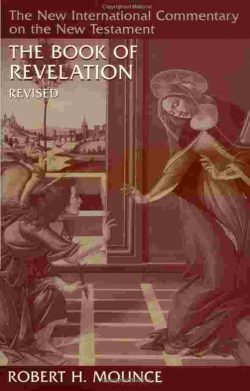
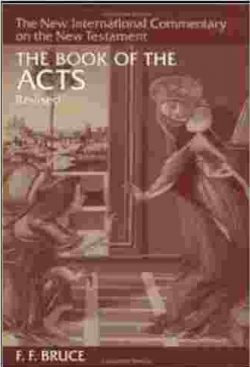
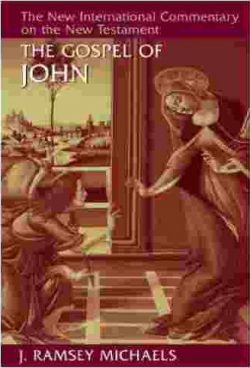

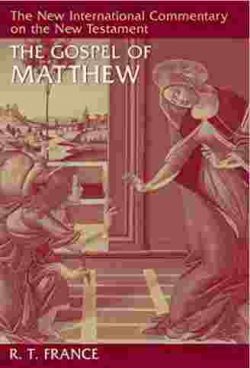

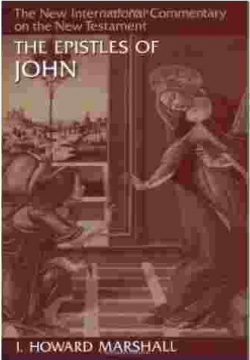
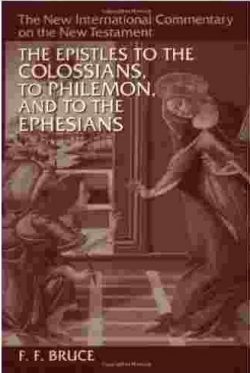
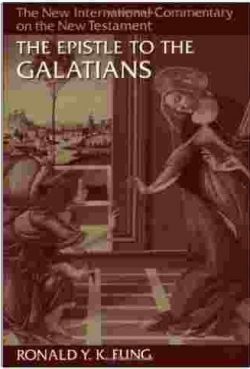

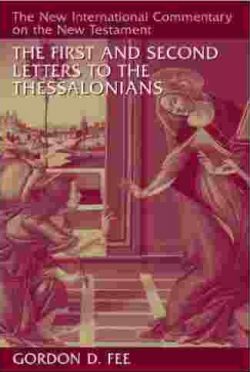

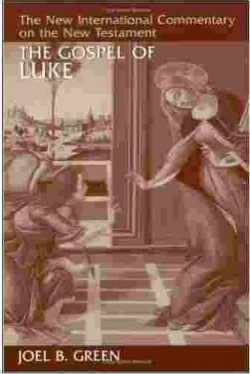
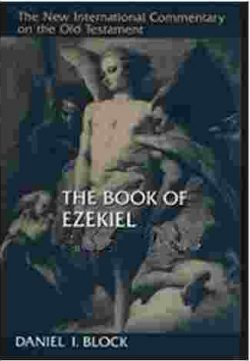

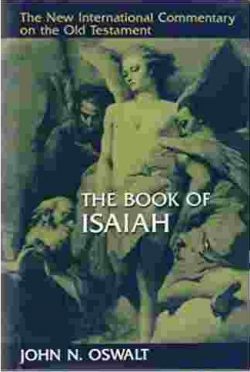
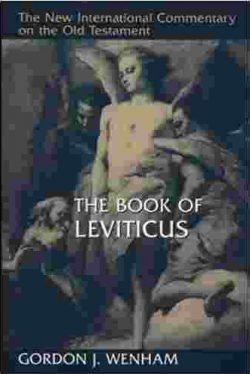
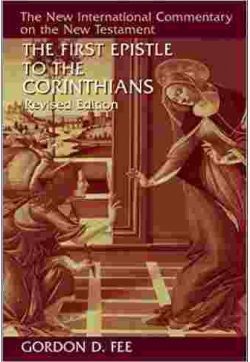
New International Commentary: The Epistle to the Romans
PRODUCT HIGHLIGHTS:
DESCRIPTION
Paul’s letter to the Romans has been called “the quintessence and perfection of saving doctrine.” Perhaps the most challenging and thoroughly doctrinal book of the entire New Testament, Romans deals with many issues that are basic to Christian theology and practice. In this volume respected New Testament scholar Douglas J. Moo provides a superb study of Paul’s letter to the Roman Christians and restates the enduring message of Romans for Christians today.
Based on the English text but bringing into the discussion the underlying Greek at every point, this commentary focuses both on theological meaning and on contemporary significance. Moo contributes to the continuing debate regarding Paul’s teaching on such issues as Jewish law and the relationship between Jews and Gentiles in the people of God. He also critically interacts with “the new perspective on Paul,” highlights Romans’s emphasis on “practical divinity,” and traces the theme of gospel throughout the epistle.
Twelve years in the making and a steady seller during its first decade in print, Moo’s Epistle to the Romans will continue to serve as a standard exposition of Romans.
….